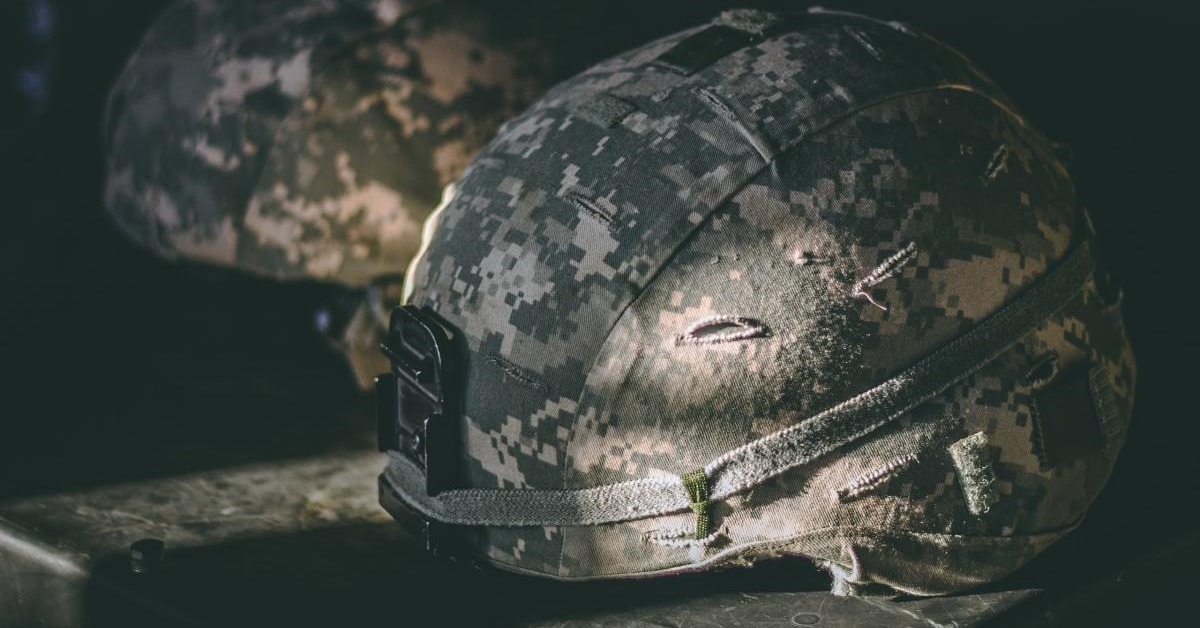
What is a Military-Friendly Gold School?
Some institutions are better positioned to support the military community [...]

Becoming a member of the U.S. Armed Forces requires dedication to the protection and well-being of America and all its residents. In appreciation for the selfless bravery active service members and veterans demonstrate, the government provides a wide spectrum of benefits to support them while serving and long after.
For example, in addition to providing healthcare benefits for active duty and retired service members, the Civilian Health and Medical Program of the U.S. Department of Veterans Affairs offers discounted benefits for dependents. Meanwhile, an Interest Rate Reduction Refinance Loan can help lower interest rates and provide lower monthly payments. Other benefits include adaptive equipment and automobiles for disabled service members and veterans, specialized tax benefits, rehabilitative services, and survivors’ pensions.
Educational support ranks high among military service members’ and veterans’ favorite benefits. Programs such as the GI Bill, Yellow Ribbon Program, and Military Tuition Assistance Program, all of which we discuss later in this guide, can help you pay for an education without going into substantial debt.
Will the military pay for your Aerospace and Defense MBA? This article addresses this question and also discusses:
An emerging graduate degree option currently offered by two universities, the Aerospace and Defense MBA (ADMBA) focuses on developing the next generation of business leaders who can develop and expand this growing industry. In 2020 alone, the industry reported $697 billion in revenue.
Completed in just 12 months, the Aerospace and Defense MBAs provided by The University of Tennessee-Knoxville’s Haslam School of Business and The University of Oklahoma’s Price School of Business take just 12 months to complete and were designed to support working professionals. Combining online MBA coursework with in-person residency periods, these programs ensure graduates possess traditional business skills in project management, supply chain management, financial management, human resources, and information technology and know how to deploy them within the A&D industry.
While these programs prefer candidates with some military and/or defense experience, the only non-negotiable prerequisite is at least a few years of professional business experience. Individuals currently working in non-A&D industries who want to use their MBA to transfer into the field can use these degrees to do so. A typical cohort includes active service and military veterans, A&D professionals, and business leaders from other disciplines.
At The University of Oklahoma (UO), admitted students complete a one-year Executive MBA requiring at least five years of professional work experience. The University of Tennessee-Knoxville (UTK) offers a program that sits between traditional and executive Master of Business Administration programs.
Earning a generalist MBA degree or one with a concentration such as aerospace and defense provides the qualifications hiring managers look for when recruiting for high-powered and well-paid leadership roles. While generalist MBAs ensure you possess the traditional business principles needed to succeed in professional circles, they do not provide the specialized training that helps set you apart from another candidate seeking work at an A&D company.
Only two universities currently offer defense MBA programs in the United States, making it a rare qualification to hold. Given the convergence of business and defense knowledge, graduating from UTK or UO should position you well to move up the career ladder more quickly. Additionally, taking advantage of military education benefits can help you graduate with far less debt than if you were paying out of pocket.
Earning an aerospace and defense MBA qualifies you for many different jobs. Plenty of active service members decide to pursue this degree and oversee functions across military branches and federal offices.
For instance, a graduate may decide to work in acquisitions and contracts for the U.S. Air Force to manage the supply of fighter jets and helicopters from the likes of Boeing or Airbus. Another might decide to provide financial management expertise for the Department of Defense.
Individuals who decide to leave the military and for civilian life can choose from many different private organizations that comprise the aerospace and defense industry. Boeing, Raytheon, Grumman, Garmin Aviation, Lockheed Martin, Delta, and Heico are just a few of the many major employers in this sector.
Both UTK and UO set specific admission requirements and keep class cohorts small to provide intimate learning environments. Most importantly, both programs require applicants to possess existing professional experience—UO specifies a minimum of five years, while UTK looks for candidates with leadership experience and “increasing responsibility.”
If you decide to attend UTK, know that the application process includes providing the following admission materials:
The University of Oklahoma sets similar requirements; it does not require GRE/GMAT scores but does look for candidates with 3.0 or higher undergraduate GPAs.
| University and Program Name | Learn More |
|
Pepperdine University:
Online Master of Business Administration
|
|
|
Stevens Institute of Technology:
Online Master of Business Administration
|
|
|
Merrimack College:
Master of Science in Leadership
|
|
|
Merrimack College:
Master of Science in Management
|
|
|
The University of Tennessee:
Online Master of Business Administration
|
Since World War II, the GI Bill has helped active duty service members and veterans alike cover a portion or even the full amount of their education. While the Post-9/11 GI Bill (for those who provided active service after September 11, 2001) requires applicants to already be veterans, the Montgomery GI Bill allows active duty members to receive financial aid while still serving their country.
Veterans who need additional funding to attend a public school as a non-resident, a private school, or a foreign school, can receive additional educational assistance by using the Yellow Ribbon Program if their chosen school participates.
Service members planning to leave active service, or those who have already done so, can receive free educational and career counseling to help them plan their next academic and professional steps.
As of August 2022, in-state learners attending a public school can have all of their tuition costs and fees covered. Those attending a public school out-of-state can receive up to $26,381.37 per academic year and may qualify for additional support through the Yellow Ribbon Program. Because both ADMBAs currently available are provided by public institutions, all students will fall into these two categories. Those taking advantage of the Post-9/11 GI Bill may also receive additional allowances and stipends to help cover housing, books, supplies, and travel.
The Yellow Ribbon Program specifically supports veterans who want to attend a public school as an out-of-state learner and can help cover some or all of the costs that remain after maxing out the Post-9/11 GI Bill. Eligibility requires that your school participate in the Yellow Ribbon Program; the universities also decide how much funding each learner receives.
Questions or feedback? Email editor@noodle.com

Some institutions are better positioned to support the military community [...]

Aerospace & defense MBA programs combine online learning and in-person [...]

The 8 Keys to Success,created by the DOE, VA, and [...]

Anyone with professional military, A&D industry, or business experience interested [...]

You'll study traditional MBA fields,marketing, finance, management, leadership, economics, and [...]
Categorized as: Business Administration, Management & Leadership, Business & Management